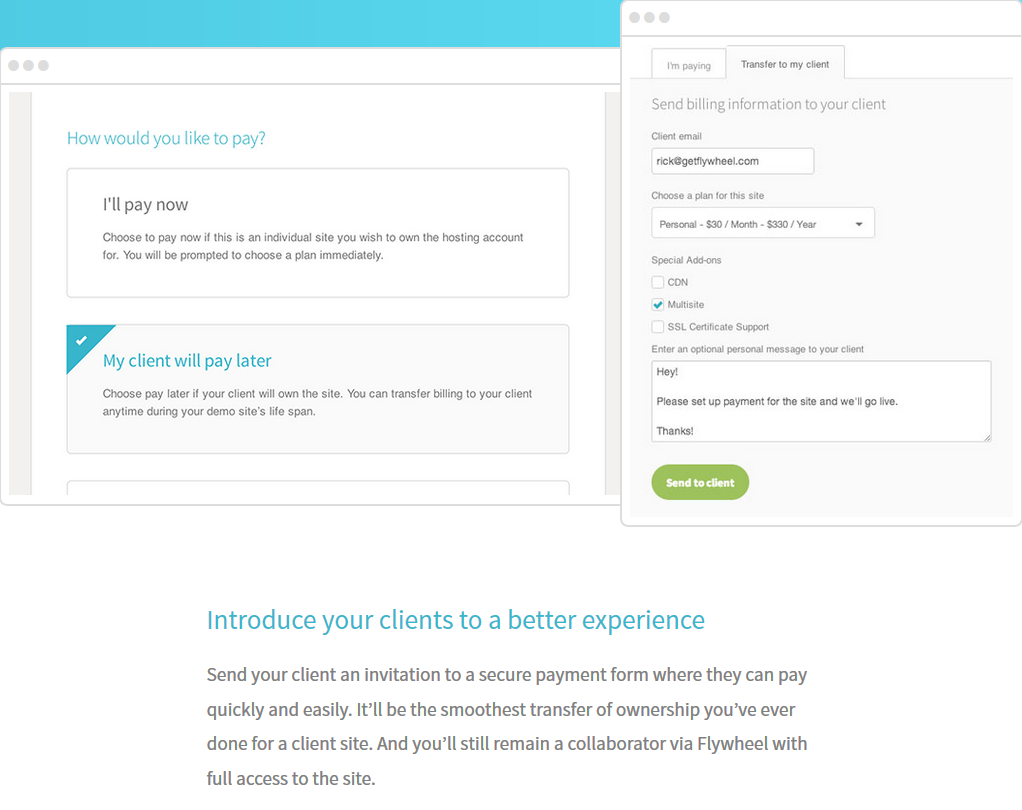Brad Touesnard, Founder of Delicious Brains, explains why clients should own the licenses purchased by developers if the plugin is an integral part of the project. Sometimes developers who purchase licenses fail to keep them updated or keep in touch with clients.
“Worst case scenario: The client never updates the plugin and eventually it breaks the site or the site gets hacked. Best case scenario: The client is angry that they need to buy a new license to update the plugin but grinds their teeth and hits ‘Complete Order’”, Tousenard said.
When it comes to communicating the costs of licenses to clients, Tousenard suggests asking the following questions:
What would it cost to develop the features from scratch? And what about all the bugs that come with developing something new? If the features aren’t worth $59 per year for them, then maybe they don’t need them after all.
Transferring ownership of licenses typically involves a number of steps. Developers can either walk clients through the purchasing process so no information has to be exchanged. Or, the developer purchases the license, bills the client, and changes the billing information.
Tousenard highlights Flywheel’s billing transfer system as an excellent example of how to make the process easier. Developers create a URL within Flywheel that is sent to the client where they can purchase the license themselves.

If I spent money on a project that requires licenses, I expect to own and maintain those licenses. However, I also understand that many clients may not want to go through the hassle of opening support tickets, manage the plugin, and therefore, opt to use a service or have the developer manage it.
The post has generated a number of comments from developers who, for the most part, use developer licenses and manage client sites as part of a bundled service. Richoid explains how he handles licenses for his clients:
I philosophically agree, but about half of my clients are just too confused by all the details. They are small business people with too much to think about and no dedicated staff or even a marketing director to think things through.
So, I keep a dev license where I can, and often buy licenses for clients on other plugins/themes simply so they don’t have to stress about it, if they have that problem. I might have a line-item in the bill if it’s over ~$50. About 1/2 are sufficiently savvy to manage their own licenses. The other half can’t even keep track of their logins.
If Kronda uses her developer licenses on client sites, she clearly communicates that if they decide to move on from her services, that they’ll need to purchase their own license.
I’m a big fan of clients owning their plugins. And if I’m going to use my developer license there’s a clear discussion around it and I make them aware that if they decided to part ways, they’ll need to purchase the licenses.
I changed my whole business to only work with long-term clients so this is less of an issue but awareness and expectations are key. I also document my client’s sites including a spreadsheet of all the plugins, free or paid, who owns the licenses, and the renewal dates.
I encourage you to read the article and the associated comments as it’s a great conversation. If you’re a developer or consultant, how do you manage licenses for your clients?
Yup. Actually, clients should own their entire “stack.” That is, repo org, tools for deploying, etc., etc., etc. At any given moment, you should be able to hand the client the keys (read: user names and passwords) to THEIR castle. They paid for it.
If you honesly believe in agency there is no other way.